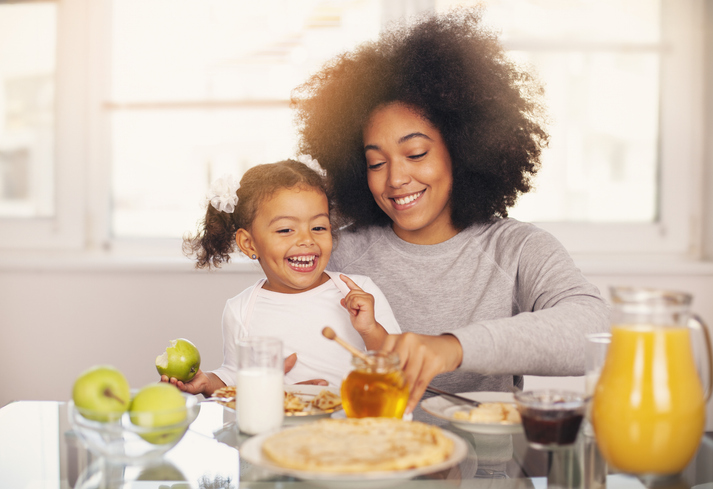Honey is often seen as a natural and healthy sweetener, but it poses a significant risk to infants. For parents, it's crucial to understand why babies should avoid honey during their first year of life. Dr. Monica Davern of Blueberry Pediatrics explains the facts about honey and its potential dangers to infants.
Key Takeaways
- When an infant ingests honey, they may also ingest a bacteria found in the honey, which can grow and produce toxins in the baby's intestines.
- Toxins created by the bacteria in honey can cause infant botulism - a rare but serious form of food poisoning.
- If your baby ingests honey, monitor symptoms and seek immediate medical care if symptoms of infant botulism arise.
Can babies have honey?
No child should consume honey before their first birthday.
Why can't babies eat honey?
If a baby consumes honey, they risk developing infant botulism.
What is infant botulism?
Infant botulism is a rare but serious form of food poisoning that can affect babies up to a year old. It occurs when a baby ingests Clostridium botulinum spores, a bacteria that produces toxins in the infant's intestines that can lead to paralysis. In the USA, about 100 cases of infant botulism are reported each year, with 20% linked to honey consumption.
Infant botulism symptoms
Symptoms can appear between 10 and 30 days after a baby ingests honey. Parents should monitor their baby closely for signs of illness and seek medical care immediately if symptoms appear.
Symptoms of infant botulism may include:
- Muscle weakness and floppiness
- Difficulty swallowing
- Weak cry
- Drooping eyelids
- Trouble breathing
- Lack of bowel movements
- Excessive drooling
- Shallow breathing
If left untreated, infant botulism can lead to serious complications, including respiratory failure.
<div fs-richtext-component="cta" class="content_cta">
<div class="content-cta__title">
<div class="y-tex-xxs text-color-white">
Blueberry - Rated best for online pediatrics!
</div>
</div>
<div class="y-text-2xl text-color-white">
👩🏽⚕️ Chat With A Pediatrician About Your Child's Symptoms
</div>
<a href="https://app.blueberrypediatrics.com/join_blueberry_18a_cart?promo=blog100"
target="_blank" class="content-cta_btn w-button">
Get Started
</a>
<link rel="prefetch" href="https://app.blueberrypediatrics.com/join_blueberry_18a_cart?promo=blog100">
Why are babies at risk for botulism?
Babies under 12 months have immature gut and immune systems, making them more susceptible to infant botulism. Their digestive systems are not developed enough to defend against the bacterial spores in honey. The risk of infant botulism is higher in babies younger than six months old.
How common is the bacteria causing botulism in honey?

The presence of Clostridium botulinum spores in honey varies. Studies have found these spores in anywhere from 2% to 25% of honey samples. Even though the risk may seem low, the consequences can be severe, so it's best to avoid giving honey to infants altogether.
Is cooked honey safe for babies?
No, neither raw honey nor cooked honey are safe for babies. Clostridium botulinum spores are heat-resistant and can survive in cooked honey. Therefore, baked goods containing honey, like graham crackers, certain breads and cereals should be avoided for infants.
When can I feed honey to my baby?

After their first birthday. Honey has several health benefits, including anti-inflammatory properties and antioxidants. It can be used as a natural sweetener in place of sugar. After age 1, a baby's digestive system is better developed and can handle Clostridium botulinum spores without causing illness. Here are some tips for safely introducing honey:
- Introduce honey in small amounts, added to foods they already enjoy.
- We encourage feeding honey sparingly and in moderation, as it is still an added sugar.
Have more questions about honey safety or infant botulism?
Understanding the risks associated with honey and infant botulism is crucial for parents. Following these guidelines can help keep your baby safe and healthy - but if questions arise, you can chat with a board-certified pediatrician anytime through Blueberry Pediatrics.
Blueberry Pediatrics offers 24/7 access to board-certified pediatricians who are ready to help with all your parenting questions and concerns, as well as symptoms and illnesses your family may experience.
.png)






.avif)
%20.avif)
.svg)






.svg)
.svg)